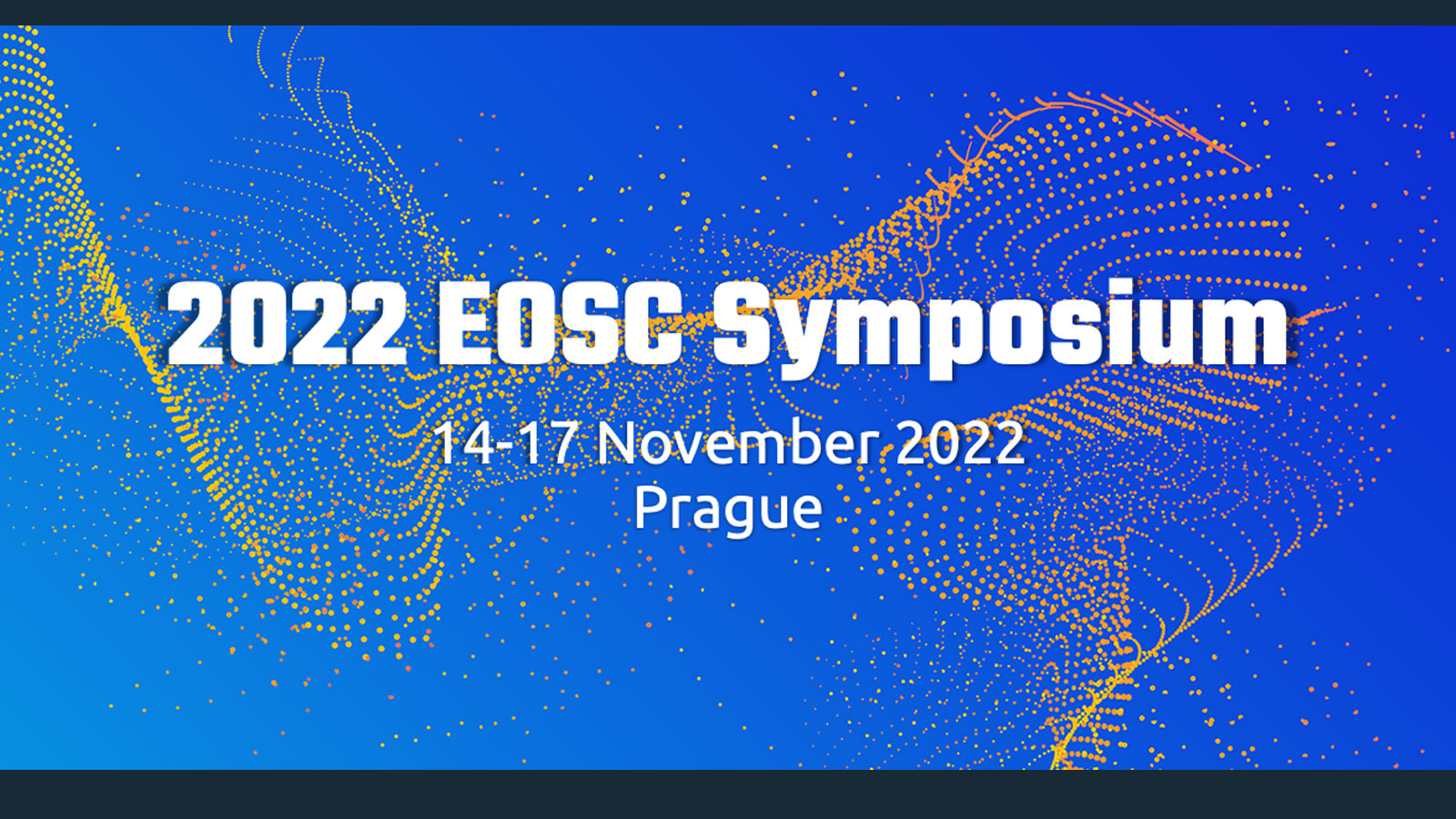The EOSC Symposium was held from 14 to 17 November as a hybrid event in Prague and online. Held in conjunction with the Second EOSC Tripartite Event, the symposium brought together actors from across the EOSC ecosystem to present and share updates.
FAIR-IMPACT at the event
FAIR-IMPACT is organising three sessions at the Symposium.
On 16th November, FAIR-IMPACT is organising with Skills4EOSC a joint talk entitled "Engaging stakeholder communities in Skills4EOSC and FAIR-IMPACT" to provide an overview of FAIR-IMPACT and Skills4EOSC projects and show how each will work to foster two-way engagement with different stakeholder communities to build capacity and to support the adoption of Open Science and FAIR-enabling practices. Also, a session on EOSC PID Policy and FAIRCORE4EOSC Measuing Compliance, jointly organise with EOSC, will take place.
On 17th November FAIR-IMPACT is organising two workshops, one jointly organised withe FAIRCORE4EOSC sister project on Semantic Interoperability in EOSC; the second dedicated to future benefits of PIDs implementation in the EOSC.
Furthermore, Ingrid Dillo (DANS & FAIR-IMPACT Coordinator) was invited to join a panel discussion on 16th November 09:45 – 10:30 CET, focused on Interoperability. The panel will be moderated by Dr. Michel Schouppe, Senior expert, Open Science DG R&I, European Commission.
OUR WORKSHOPS at the event
16th November, 14.30-18.00, Talk "Engaging stakeholder communities in Skills4EOSC and FAIR-IMPACT"
Abstract: The vision of the European Open Science Cloud is one where Open Science is the norm and FAIR data are produced by design and available for reuse. This vision depends upon having access to appropriate and sustainable technical infrastructure and standards but, more crucially, on the uptake of FAIR-enabling practices by a wide range of stakeholders who are supported over the entire research lifecycle by a skilled community of professional data stewards. This short talk will provide an overview of the newly launched FAIR-IMPACT and Skills4EOSC projects and show how each will work to foster two-way engagement with different stakeholder communities to build capacity and to support the adoption of Open Science and FAIR-enabling practices.
16th November, 16.30-18.00, Session "EOSC PID Policy and FAIRCORE4EOSC Measuring Compliance"
Abstract: FAIRCORE4EOSC aims to provide a set of operational services and components to support the increased use and utility of EOSC. One of its deliverables will be a Compliance Assessment Toolkit (CAT), configured for EOSC policy compliance monitoring. EOSC has made a start with publishing a policy that is being refined by the EOSC Task Force on PID Policy. FAIRCORE4EOSC, via its work on CAT and the activities of the the Technical Bridging Team will engage the relevant task forces, other EOSC-focused projects, including FAIR-IMPACT, and the broader community in an effort to make the toolkit as useful and relevant as possible. This session will actively engage end users and the EOSC community to confirm the scope of the policy and mechanisms to measure and confirm compliance.
17th November, 11.00 - 12.30 CET, Workshop: "Semantic Interoperability in EOSC"
Abstract: The diversity in the current RI landscape of data and metadata formats and schema poses problems for interdisciplinary research. The FAIRCORE4EOSC and FAIR-IMPACT projects propose an interoperability strategy that allows for format, schema and data type diversity, and facilitates interoperability where needed but remains manageable. With this strategy, semantic artefact registries and smart tooling facilitate researchers to maintain semantic artefacts, create semantic mappings and conversions, and share them, thus leveraging community expertise. Providing smart tools that promote adoption of data and metadata interoperability best practices like FAIR semantic artefacts, will advance current practices but remain inclusive with regards to registration and sharing of already existing resources.
17th November, 13.30 - 15.00 CET: Towards a shared value proposition for Persistent Identifiers in EOSC
Abstract. The implementation of FAIR principles for data and services is at the core of EOSC’s implementation phase. Broad community engagement and support are needed to develop standards, tools and services that enable the research community to find, access, reuse and combine research results. Persistent identifiers (PIDs) are the “building blocks of scholarly infrastructure” (Meadows, et al, 2019) and a key component of the FAIR principles, but what are their roles and benefits across EOSC? This workshop-session will facilitate a community discussion to answer these questions. Together we’ll explore and identify key users (personas), current pain points and future benefits of PIDs implementation in the EOSC web of data and services. The outcome will be used for the FAIR-IMPACT project to define a common value proposition for persistent identifiers in EOSC.
